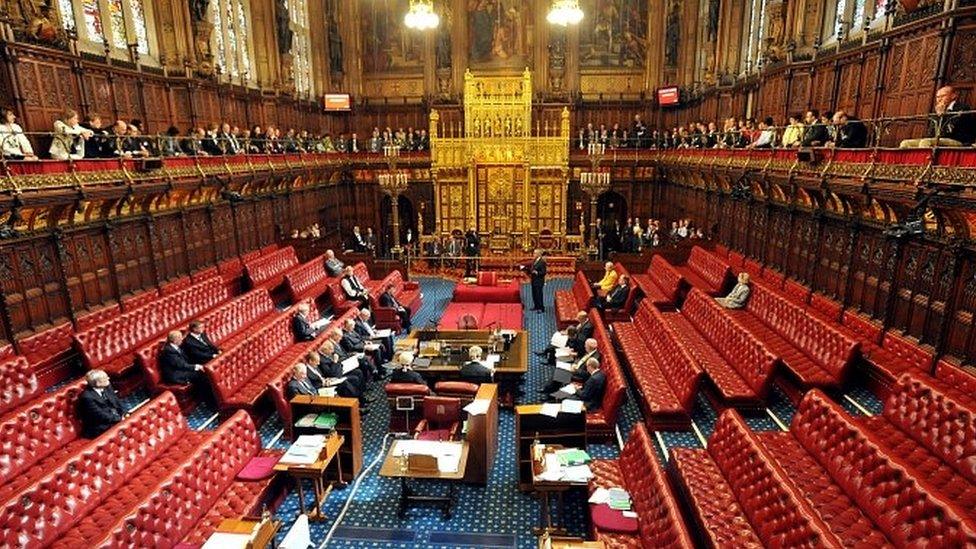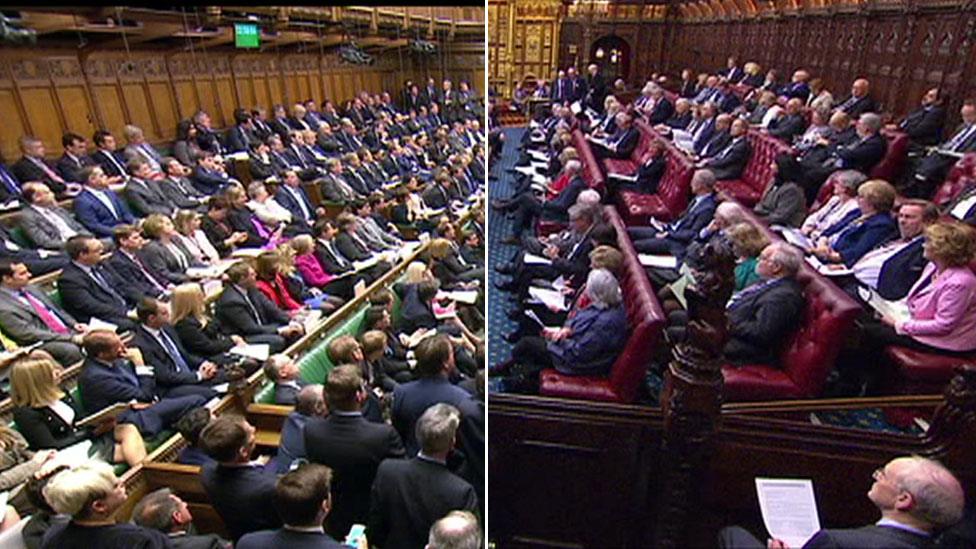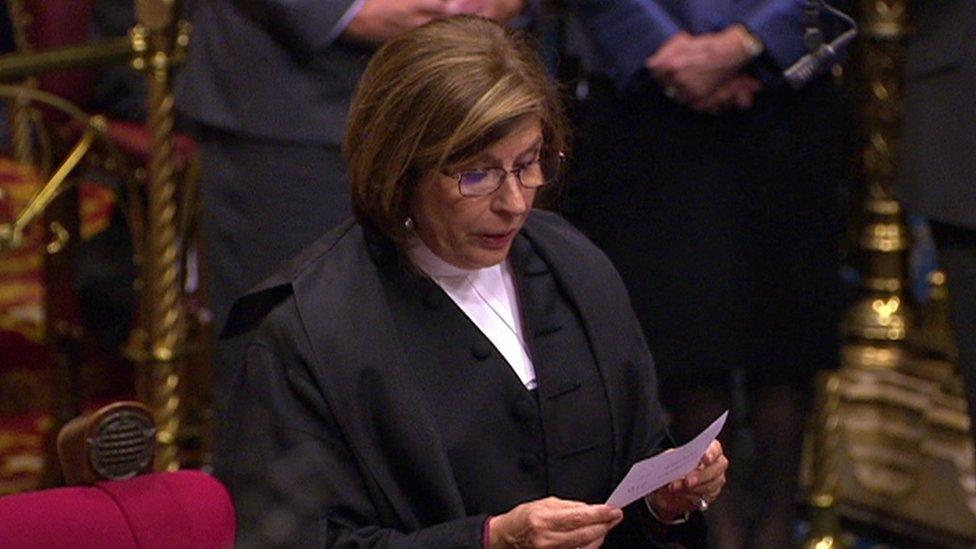Lords veto powers 'to be curtailed'
- Published
- comments

The government does not have a majority in the House of Lords
David Cameron is preparing to use the full force of the law to clip the wings of the House of Lords after it blocked his welfare cuts, the BBC has learned.
A review will say peers should lose their absolute veto over detailed laws known as secondary legislation.
Peers will instead be offered a new power to send these laws back to the Commons, forcing MPs to vote again - but will only be able to do this once.
The review was ordered after peers voted to delay tax credit cuts.
Labour said the reform was a "massive over-reaction" to the government defeat.
No majority
Crucially, the new rules will be written into the statute book via primary legislation.
This means that if peers try to oppose the rule change, the government will be able to use the Parliament Act to force them to back down and accept this loss of power.
The review, carried out by former cabinet minister Lord Strathclyde, will be published on Thursday.
MPs and peers will be able to debate the changes in the new year but the prime minister is expected to accept the broad thrust of the recommendations.
Peers on all sides are expected to oppose any reduction in their abilities to force the government to reconsider its plans.
The Conservatives have no majority in the House of Lords and Labour and Lib Dem peers are determined to use their combined voting power to challenge government policy.
Rare veto
In October peers used their clout to veto the government's proposals to cut tax credits, which ministers tried to drive through via secondary legislation.
It was only the sixth time such a veto had been used in the last half century because peers have, by convention, been reluctant to challenge the will of elected MPs this way.
Peers normally express their opposition to secondary legislation by backing something called a "motion to regret" which is symbolic and has no direct effect.
Downing Street hopes the new power to ask the House of Commons to think again over secondary legislation will help them get the changes through the House of Lords.
The change to the law is likely to come in a government amendment to the Statutory Instruments Act 1946.
'Churlish'
In last month's Autumn Statement, Chancellor George Osborne abandoned his plan for saving £4.4bn through tax credit cuts from April.
Baroness Smith of Basildon, Labour's leader in the Lords, said her party would examine Lord Strathclyde's report but said she was "still not convinced there was a problem there in the first place".
She added: "As most people at Parliament know, the government lost a vote on tax credits and in a massive over-reaction have decided to try and change the rules of the game.
"That looked churlish at the time and it feels no different now."
- Published28 October 2015

- Published26 October 2015
